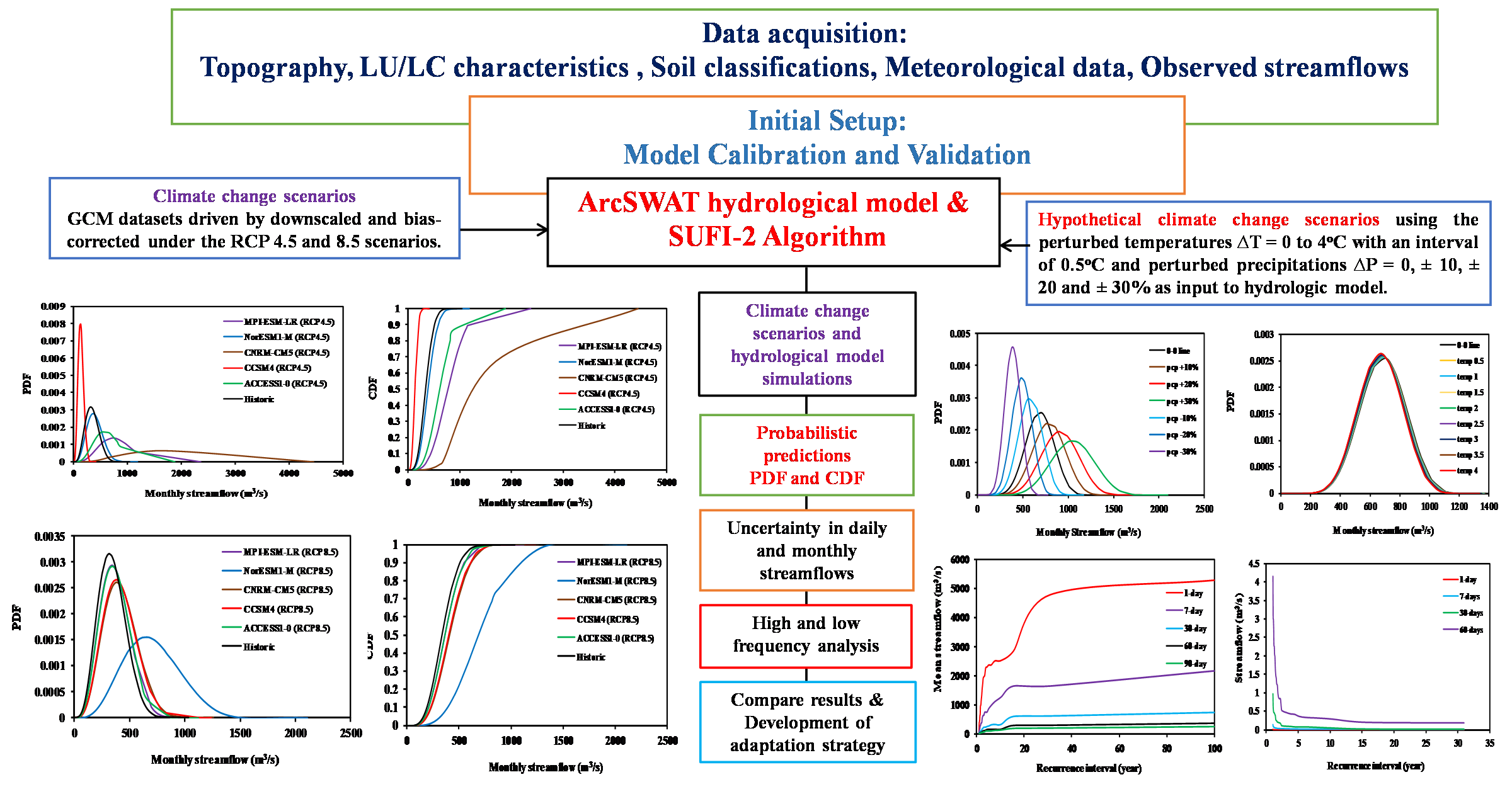-
VolumeVolume 22 (2020)
-
Issue
-
Pages320-335
- gnest_03328_published.pdf
-
Paper IDgnest_03328
-
Paper statusPublished

The present study analyses the various uncertainties and nonstationarity in the streamflow projections of Subarnarekha river basin in Eastern India using two widely used hydrological climate models: 1) general circulation model (GCM), and 2) forcing climate change scenarios. These two climate models are used to force the ArcSWAT model. Subsequently this model is calibrated using SUFI-2 optimization technique. The downscaled and bias-corrected data from an ensemble of 10 climate projections with representative concentration pathways (RCP) 4.5 and 8.5 scenarios (five each) were used in first model, whereas in second model a total of 63 (7 perturbed precipitations and 9 perturbed temperatures) combinations of hypothetical climate change scenarios were used. The results show very good correlation during monthly calibration time steps and relatively good agreement between the observed and simulated streamflows in daily calibration time steps. The uncertainties are expressed in probabilistic terms using probability density function (PDF) and cumulative distribution function (CDF) as they provide significant information for decision process in climate change adaptation in the river basin. The uncertainties associated with climate models, return periods and streamflow extremes are also analysed in the present work. The RCP 8.5 scenarios seem more appropriate than RCP 4.5 scenarios in quantifying the uncertainties under nonstationarity assumptions. The mean values of water balance components and their percentage variation for both historic and future periods reveal that the water balance components get affected significantly due to climate change in a future period. Consequently, the streamflows are likely to decline in the river basin. The present study also highlights the comprehensive approaches that are being planned to facilitate adaptation to climate change as well as those that are specific to the water resources management in the study region. The findings in this work are useful for overall well-being of people in the study area.
Total file downloads: 7